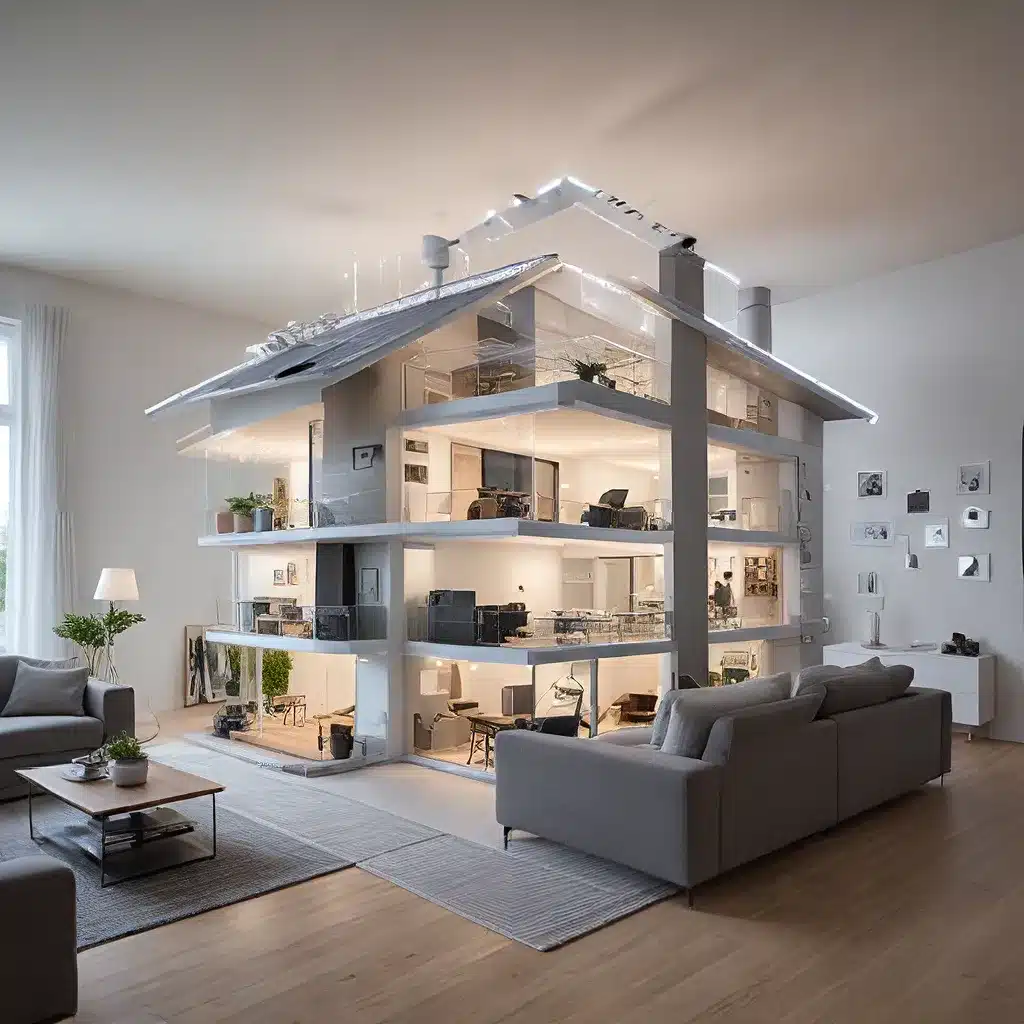
In an era of growing concern for environmental sustainability, smart homes have emerged as a beacon of hope. With their advanced automation and connectivity features, smart homes have the power to significantly improve energy efficiency, minimizing waste and reducing our carbon footprint. As we explore the transformative impact of smart homes on energy efficiency, we will uncover the benefits, technologies, and real-world applications that pave the way towards a greener future.
Embracing Energy Visibility and Control
Smart homes provide homeowners with unprecedented control over their energy consumption. Through smart meters and energy monitoring systems, residents gain real-time insights into their energy usage patterns. This visibility empowers them to make informed decisions and adopt energy-saving practices. By identifying energy-intensive appliances and optimizing their usage, homeowners can reduce unnecessary consumption and ultimately lower their energy bills.
Heating and cooling account for a significant portion of residential energy consumption. Smart thermostats have revolutionized climate control by learning from user preferences and adjusting temperature settings accordingly. With the ability to adapt to occupancy patterns and external weather conditions, these devices optimize energy usage by avoiding overcooling or overheating empty spaces. As a result, homeowners can enjoy optimal comfort while minimizing energy waste.
Gone are the days of leaving lights on in unoccupied rooms. Smart lighting systems utilize occupancy sensors and schedule-based automation to ensure lights are only active when needed. These systems can also integrate with natural light sensors, adjusting artificial lighting levels accordingly. By automatically turning lights off in vacant areas, smart homes eliminate unnecessary energy consumption and contribute to a more sustainable lifestyle.
Optimizing Appliance Efficiency
Smart homes enable efficient management of appliances, reducing energy waste. Integration with smart plugs, power strips, and energy monitoring devices allows users to remotely control and monitor the energy consumption of individual appliances. With this capability, homeowners can identify energy-hungry devices, implement power-saving schedules, and even switch off appliances when they are not in use, all from the convenience of their smartphones.
Embracing Renewable Energy
Smart homes seamlessly integrate with renewable energy systems such as solar panels or wind turbines, promoting the adoption of clean energy sources. Through advanced energy management systems, homeowners can monitor their renewable energy production, optimize energy storage, and even sell excess energy back to the grid. By leveraging renewable energy and reducing reliance on traditional power sources, smart homes contribute to a more sustainable and eco-friendly energy landscape.
Transitioning to a Sustainable Future
Smart homes are not just a trend but a significant step towards a sustainable future. As technology continues to advance, smart homes will become even more intelligent and energy-efficient. Integrating artificial intelligence (AI) algorithms and machine learning capabilities will further optimize energy usage, allowing homes to adapt to occupants’ preferences, weather patterns, and energy pricing for maximum efficiency.
Smart homes are at the forefront of the energy efficiency revolution. With their ability to monitor, automate, and optimize energy consumption, they empower homeowners to make informed choices that positively impact the environment and their energy bills. As we continue to embrace smart home technologies, we move closer to a future where sustainable living is seamlessly integrated into our daily lives.
The Future of HVAC: Smart Home Technologies
The advancements in smart home technology have revolutionized the way we interact with our homes, making them more convenient, efficient, and secure. One of the key areas where smart home technology has had a significant impact is in the realm of Heating, Ventilation, and Air Conditioning (HVAC) systems.
Smart home technology has provided homeowners with unprecedented control and customization over their HVAC systems. With smart thermostats, users can remotely adjust temperature settings from their smartphones or through voice commands with virtual assistants like Alexa or Google Assistant. This allows for optimizing heating and cooling based on occupancy patterns or changing weather conditions, even when residents are not at home.
Furthermore, smart home technology has also improved energy efficiency in HVAC systems. Smart thermostats can learn homeowners’ preferences over time and automatically adjust temperature settings to save energy when the home is unoccupied or during certain times of the day. These devices also provide insights into energy usage, empowering homeowners to make more informed decisions about their energy consumption.
In addition to improved control and efficiency, smart home technology offers enhanced comfort through zoned heating and cooling. Homeowners can divide their homes into different zones with individual temperature controls, ensuring each area maintains its desired climate without wasting energy on unoccupied spaces. Integrating other smart devices, such as sensors, window shades, or air quality monitors, further enhances the precision and responsiveness of HVAC systems.
Some popular smart home devices for HVAC control include:
- Smart Thermostats: Allowing for remote temperature adjustment and learning user preferences for improved energy efficiency.
- Smart Vents: Optimizing airflow by opening or closing vents in different rooms based on occupancy and desired comfort levels.
- Smart Sensors: Monitoring indoor air quality and humidity levels to maintain a healthy living environment.
- Virtual Assistants: Enabling seamless voice control of temperature settings for effortless adjustments.
As smart home technology continues to evolve, we can expect even more advancements in HVAC systems. Integration with AI algorithms will enable predictive analysis of energy consumption patterns, further optimizing efficiency. Additionally, ongoing research efforts focused on developing innovative materials and refrigerants could revolutionize the way HVAC systems operate, making them even more environmentally friendly and cost-effective.
The future of HVAC is undoubtedly intertwined with the rise of smart home technology. By harnessing the power of intelligent automation, real-time data analysis, and remote control, homeowners can enjoy unparalleled comfort, energy savings, and a reduced carbon footprint. As we embrace this technological revolution, we are taking significant strides towards a more sustainable and energy-efficient future.
Explore the sensor networks website to stay up-to-date with the latest advancements in smart home technology and its impact on energy efficiency.